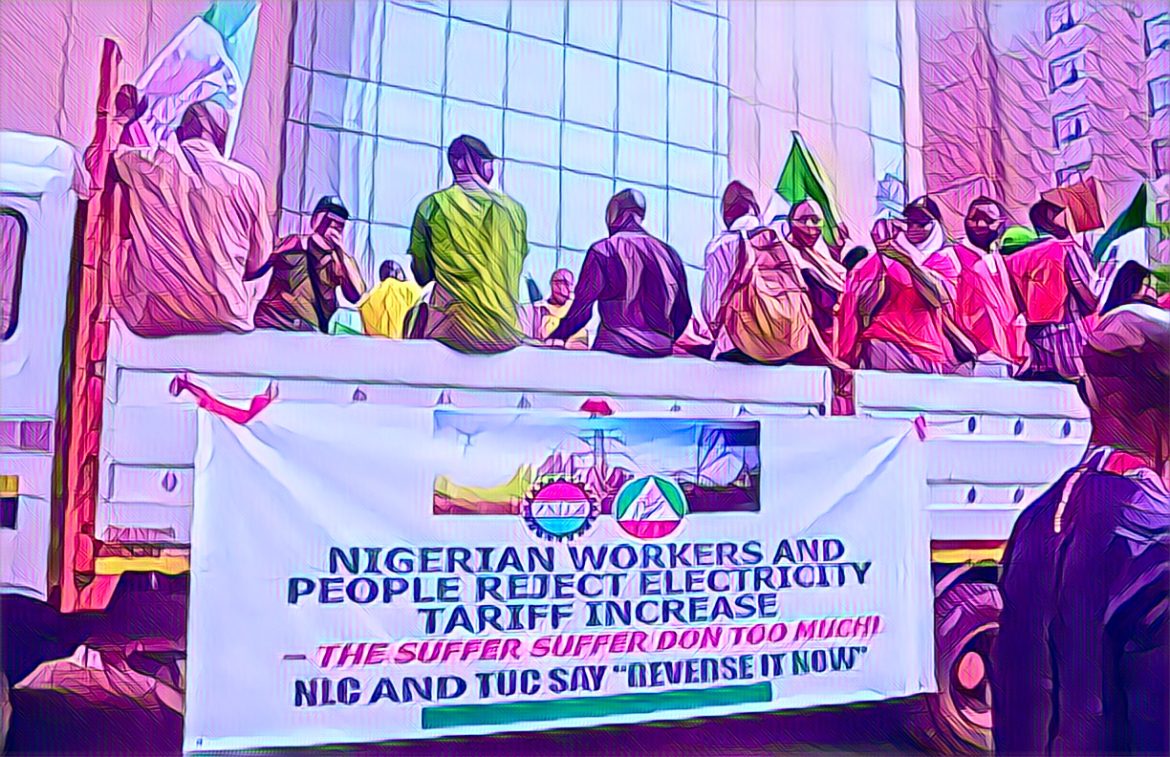Members of the National Union of Electricity Employees (NUEE) and the Senior Staff Association of Electricity and Allied Companies (SSAEAC) heightened tensions on Monday by barring the Minister of Power, Adebayo Adelabu, and other staff from the headquarters of the Federal Ministry of Power in Abuja. This bold move signifies a significant protest against recent electricity tariff increases and other controversial policies affecting the power sector.
The protest took place at the same time as a strong ultimatum issued by the Nigeria Labour Congress (NLC) and the Trade Union Congress (TUC), who have demanded that the Federal Government reverse the tariff hike by May 31, 2024. The unions argue that the increase, which they claim was implemented unilaterally and without proper stakeholder engagement, has placed an unfair burden on Nigerian workers and citizens amidst economic hardships.
The unions made a strong statement at the end of a joint National Executive Council meeting, expressing their grievances. They condemned what they described as the “vexatious apartheid categorization into bands” and the significant tariff hike, labeling these actions as unjust and inconsiderate of the prevailing economic challenges faced by the populace.
Igwebike Dominic, the acting General Secretary of NUEE, stated that the shutdown of the Power House would continue until the government addresses their concerns or engages in meaningful dialogue with the unions. “The shutdown of Power House is going to continue until they hold a meeting with the unions or meet the demands outlined in our letter to the minister,” Dominic emphasized.
In a strongly worded letter to Minister Adelabu, dated May 20, 2024, the unions criticized the decision to liquidate the Transmission Company of Nigeria (TCN) without consulting key stakeholders, describing it as a display of disregard for the sector’s critical players. They accused the Minister and the National Electricity Regulatory Commission (NERC) of administering the sector without a clear agenda or consideration for the welfare of its workers.
The unions also highlighted several policies they find objectionable, including a substantial unilateral tariff increase and a proposal for a review of workers’ salaries, which they claim lacks adequate consideration. They criticized the deduction of 8% of revenue generated as technical losses from TCN, which they argue is a tactic to undermine the company’s efficiency. Moreover, they strongly opposed NERC’s order for a monthly deduction of N2 billion from TCN’s account, labeling it as unrealistic and damaging.
The labor organizations are particularly incensed by the deduction of 46.7% of TCN’s revenue for projects that benefit privately-owned Distribution Companies (Discos), questioning the rationale behind such deductions from a state-owned entity to benefit private firms. The unions have vowed to resist any attempts to privatize these assets for political patronage.
As part of their demands, the unions are calling for the immediate reversal of the tariff hike, a review of the sector workers’ salaries, cessation of all objectionable deductions from TCN, and the return of any funds already deducted. They also demand electricity rebates for all staff in the sector and insist that Generation Companies (Gencos) should not receive any revenue generated from TCN and Discos until they comply with labor unionization as per the Labour Act.


